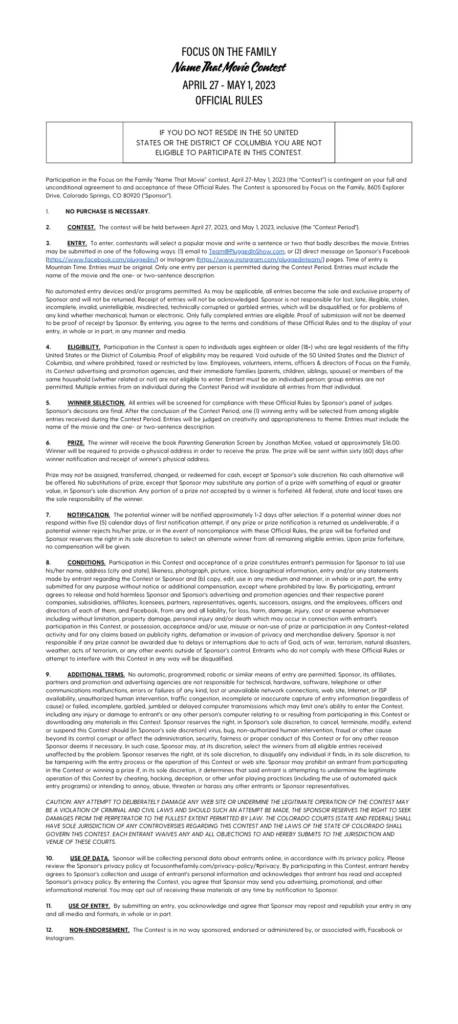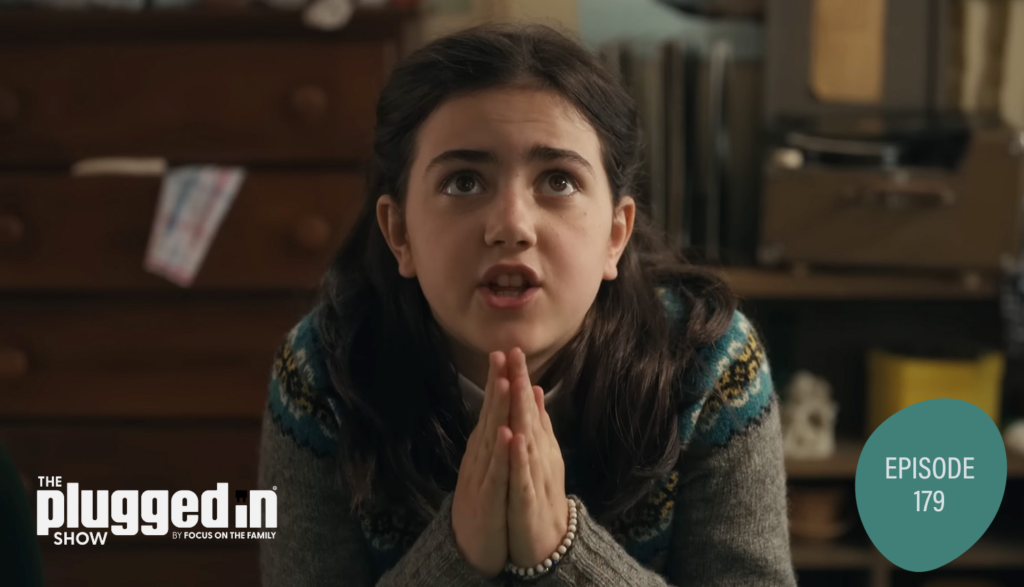LISTEN TO THE PLUGGED IN SHOW, EPISODE 179
When I was a little kid, my mom would sometimes take me to a local theater to watch old, old, old movies. So when a film from The Thin Man series was playing, she was thrilled. The series focused on the detective adventures of Nick and Nora Charles, well-to-do socialites who took their dog (Asta) and a bevy of quips to every crime scene. My mom remembered loving the movies when she was a kid, and she recalled that they were funny, clever and clean.
But she forgot about all the drinking. Nick and Nora would drink more alcohol in one evening than an entire fraternity, it seems. When a reporter asked Nora if Nick was working on a case, Nora said, “Yes. A case of Scotch.”
We see this happen regularly in our entertainment. What seems fine and dandy during one era feels ever so wrong in another. Gone With the Wind won eight Oscars in 1940, but it now comes with trigger warnings. Shows such as Friends have been called out for embarrassing plot points and lack of diversity. “There’s a whole generation of people, kids, who are now going back to episodes of Friends and find them offensive,” Friends star Jennifer Aniston admitted in a recent interview.
This week, our team bats around a few examples of entertainment not aging well in our ever-changing culture.
Speaking of changes, we also talk about an 11-year-old girl going through a ton of them in the movie Are You There, God? It’s Me, Margaret. The movie doesn’t seem to change much from the beloved Judy Blume book, by the way—but it still comes with some interesting wrinkles worth discussion.
Oh, and while we’re on the subject of change, we’re changing the time and place for our live Plugged In Show Aftercast. Instead of hitting YouTube at 9 a.m. Mountain Time on Wednesdays, it’s moving to Mondays on Instagram. (You can follow us @pluggedinteam.) Find us there every Monday at 3 p.m. Mountain Time (which, of course, is 5 p.m. Eastern, 4 p.m. Central and 2 p.m. Pacific). We’ll be talking about The Plugged In Show and the weekend’s hottest movies, as well.
One thing hasn’t changed, though: our desire to hear from you. Chime in with your own thoughts on our podcast. Have you gone back and watched something old that now feels uncomfortable? What do you think might feel inappropriate 20 years from now in our entertainment? Let us know on Facebook, Instagram or by sending us an email ([email protected]).
And, of course, you have an opportunity to compete in our awesome Name That Movie contest, as well! See rules below, along with links to everything else we talked about.

Additional Resources:
- Plugged In Blog: “Piecing Together the Legacy of Friends”
- Plugged In Blog: “There For Us: Why Friends is Still Culturally Relevant”
- Plugged In Review: Girlfriends
- Plugged In Review: Grease: Rise of the Pink Ladies
- Plugged In Review: Forrest Gump
- Plugged In Review: Aristocats
- Plugged In Review: Swiss Family Robinson
- Plugged In Review: The Mandalorian
- Plugged In Review: The Lion King
- Plugged In Review: Are You There God? It’s Me, Margaret.
- Plugged In Review (book): Are You There God? It’s Me, Margaret.







6 Responses
-I’m sorry to say this, but you made a spelling error when you spelled the author of “Are You There God? It’s Me, Margaret.” Her name is Judy Blume. This is the third instance on this website where you spelled her last name Bloom instead of Blume.
-Hi, Redeemer! I’m sorry to hear this, and my apologies to both you and Ms. Blume. I’ll be fixing this now.
-Thank you for fixing this. I wish you all the best.
-I think this comes with a change in values, especially since the Internet age means that global communication is essentially a constant and no longer so much of a technological rarity or logistical effort. These values changes shine a light on how minorities are being treated, even when certain groups benefit at their expense, and this also extends to international politics in ways that can now be told around the world with a push of a button.
How are women treated, how are people of color treated, how are LGBT people treated, how are people of other nationalities and cultures treated—as human beings, or as comic relief? I only watched “Indiana Jones and the Temple of Doom” a few years ago, being … none too pleased at how my fellow Indians were portrayed, though I was more than happy to see Ke Huy Quan win an Academy Award recently.
-i have noticed this in several Disney movies. I remember when The Little Mermaid came out and it was such a big deal because it was the first animated feature in many years. However, when I had my daughter, I noticed more that there was an anti-parent (and specifically father) attitude within the movie that I did not want to foster or support.
-People have seen a lot of problems with older Disney movies in recent years. I agree with you on The Little Mermaid. The other problem with that film is that Ariel was a disobedient, disrespectful brat. Worse, a lot of people saw Ariel as being “strong”, because their definition of strength was “standing up for yourself and not putting up with other people’s unfairness.” The problem with that definition is that too many people with too little life experience see unfairness where it doesn’t exist, become just as bad if not worse than those perpetrating the so-called unfairness in the process of standing up for themselves, and worst of all, end up hurting innocent bystanders as a result.
A great example of this would be Kevin’s actions while he was singing in the choir in Home Alone 2. While Kevin was doing his solo, Buzz stuck his electric candles behind Kevin’s head to make Kevin’s ears glow. That was bad, but how Kevin responded was much worse. Kevin turned around to face Buzz, hit Buzz in the chest, not only knocking down Buzz, but dozens of innocent bystanders who did absolutely nothing to aid, assist, or encourage Buzz, and probably had no idea what Buzz was up to. In that moment, Kevin became a worse person than Buzz.
And a lot of the same people who see Ariel as “strong” see the first three Disney princesses (Snow White, Cinderella, and Aurora) as “weak”, because they were good, mature, selfless people who respected their elders.
Here’s my two cents on this: If you can’t tell the difference between fair and unfair, I would prefer you be “weak”.